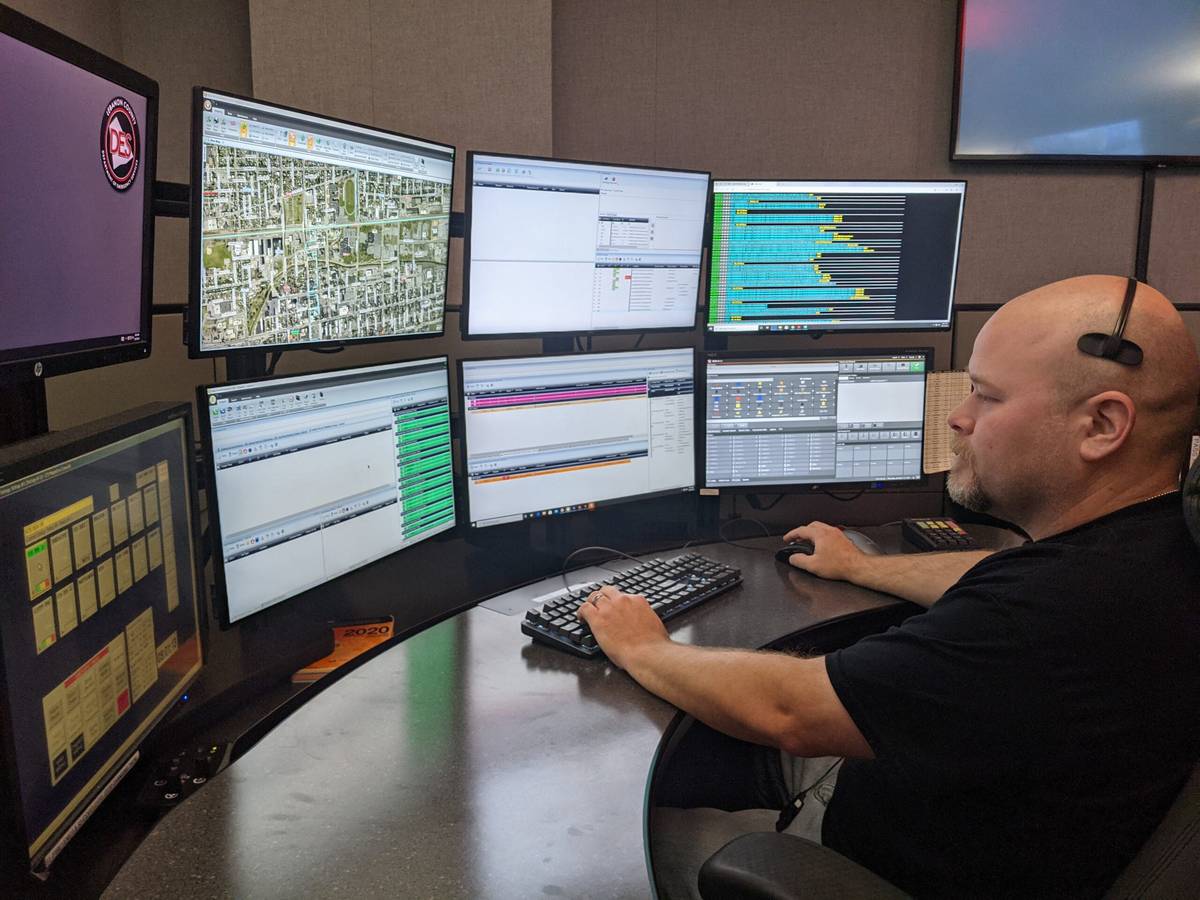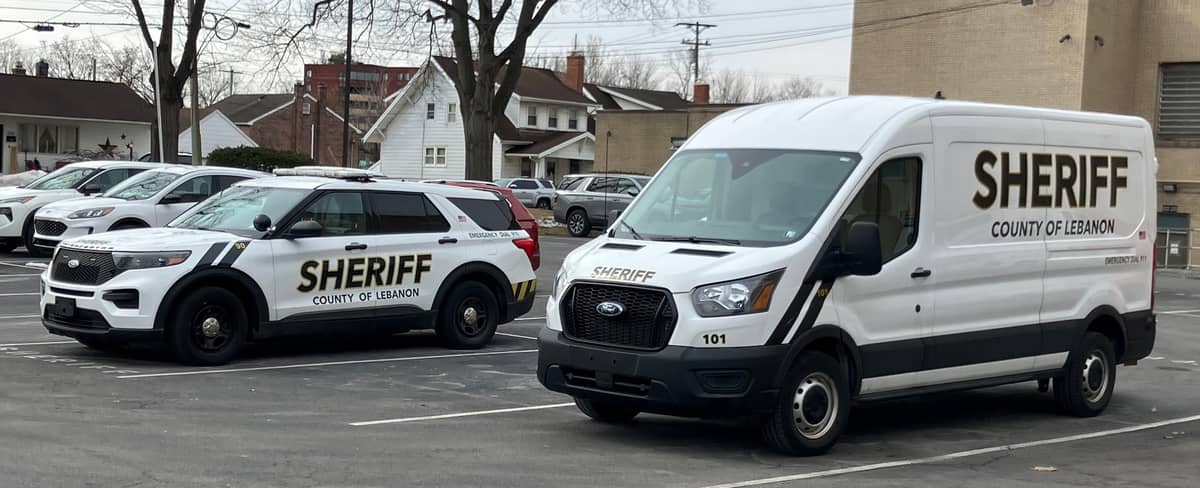A monthly surcharge on telephone and cellphone lines that funds most of the costs for critical 911 services is set to expire in January unless state legislators reauthorize it.
That funding mechanism, which is currently $1.65 per telephone and cellphone line per month, will end Jan. 31 if the state Legislature does not pass a bill renewing the surcharge.
Gov. Josh Shapiro proposed during his budget address in February to increase the $1.65 current surcharge per phone line per month to $1.97 per phone per month. He also proposed an annual automatic increase in the fee so it would rise with the rate of inflation.
Rep. Jared G. Solomon (D-202), who sponsored HB 1304, states on the House of Representatives’ website that his legislation aligns with Shapiro’s proposal and would extend the surcharge sunset date by five years to 2029.
Lisa Schaefer, executive director of County Commissioners Association of Pennsylvania, said her association proposes an increase of the surcharge from $1.65 to $2.30 per phone line per month with an annual flat $0.15 increase over the next five years. Lebanon County is a CCAP member.
“That would give cellphone providers more predictability about what they are billing and would give the counties more predictability about what revenue they will be seeing over that time period,” said Schaefer. “The CPI (consumer price index) – you never know what is coming from year to year, so being able to rely on a flat increase over the next five years will enable us to better predict and better plan for our costs on our end, too.”
Lebanon County administrator Jamie Wolgemuth said the county is in “lock step” with CCAP’s proposal on this issue, which seeks to increase funding to cover NG911 (next generation) emergency communication technology. NG911 is a newer, IP-based system that can integrate a wider range of data sources and communication technologies to improve emergency response.
The commissioners authorized a resolution at their Sept. 21 meeting in support of CCAP’s funding proposal.
Schaefer said some NG911 technologies include video conferencing with 911 operators during an emergency and text-to-911 emergency services, which was recently implemented in Lebanon County.
Read More: Lebanon County introduces text-to-911 emergency service
“Due to inflationary costs that everyone has faced, the cost of the (911) operation is higher and hopefully they (the legislators) are going to consider and approve some sort of an increase so that counties don’t have to bear more of that burden,” said Wolgemuth.
All 67 Pennsylvania counties would have to cover their 911 services if the current surcharge is allowed to sunset. The surcharge currently covers 75 percent of Lebanon County’s 911 services’ $3 million annual costs with the county paying the other 25 percent.
Wolgemuth calculated the county’s cost to fully fund its 911 center at about $8,300 per day. Since the county pays for most of its services through real estate property taxes, there is a possibility those taxes could increase.
There are 54,300 parcels that are taxed in Lebanon County, which Wolgemuth says includes “every property from the Bayer plant in Myerstown to the smallest semi-detached unit in Lebanon city.”
Wolgemuth added how many mills it would take to fully fund 911 operations in 2024.
“I can tell you that there are 54,300 taxable parcels in the county and $3,000,000 would be equal to 6.4% of our tax millage,” wrote Wolgemuth in a follow-up email to LebTown.
The mill rate is the amount of tax payable per dollar of the assessed value of a property. The mill rate is based on “mills,” a figure that represents the amount per $1,000 of the assessed value of the property, which is used to calculate the amount of property tax.
There is the possibility, however, that the commissioners may not raise taxes if the issue remains unresolved. “The commissioners will have to decide whether to increase taxes,” said Wolgemuth. “They also have the option to pay for it by dipping into county reserves.”
There is yet another option – albeit an unprecedented one – at the county’s disposal.
“I can’t see us budgeting a zero, that would be huge,” said Wolgemuth. “The anticipation, the expectation is that it is going to be renewed at some level. Hopefully, at least, at the amount it was approved, but we (CCAP members) are asking for an increase. If that doesn’t happen, the county is able to reopen the budget for significant reasons within the first 30 days of the new year. But that would be an unprecedented circumstance.”
Revisiting the 2024 budget would allow the commissioners to amend it, but that’s an option Wolgmuth would rather avoid.
“I don’t even like talking about it like that because that scenario would be terrifying,” said Wolgemuth. “To make those kind of decisions under that kind of timeframe.”
Wolgemuth added the uncertainty around passage of House Bill 1304 is making the county’s 2024 budget process difficult. The county’s 2024 budget is being crafted now and goes into effective on Jan. 1.
“There is an expectation, I think a reasonable expectation, that the legislature is going to do this,” said Wolgemuth. “Now, are they going to do it in January as they come back in session for their new session? Is it one of the things that if they do, will they have it at the top of their list? I would hope they would do that, but our budget is done. For the past 30 years, counties have added to their budgets with the reasonable expectation that it will get done again, so we’re likely going to budget at the current level (25 percent) with the reasonable expectation that it should be (renewed) again.”
Schaefer said she believes time is running out in this legislative session to get a law passed before the January deadline. The House did approve the bill by a 121-82 vote in mid-June and the legislation is with the Senate’s Veterans Affairs and Emergency Preparedness Committee.
“The House is in session this week and they do have scattered session days the rest of the year, but knowing the time that it takes for a bill to go back and forth (between the House and Senate), there are real concerns that this will get done before the end of 2023,” Schaefer told LebTown last week.
The Senate held one hearing in early September but chairman Sen. Douglas Mastriano (R-33) has also called for additional hearings this fall, according to Schaefer.
“We certainly can’t see a way forward without some sort of reauthorization or extension ourselves,” said Schaefer. “We know the House is going to have more hearings and we’ve heard that the Senate wants to have more hearings. We appreciate that the legislature wants to do their due diligence, to dig into the issue, to learn more about how 911 operates and the costs we’re facing, how to fund it. Ultimately, though, those hearings don’t move bills forward and we’re hoping to create a timeline that does that due diligence but also ultimately moves the bill forward.”
Schaefer noted some state legislators have expressed concerns about a lack of hearings for the bill.
“They felt that the bill should have gotten more hearings, more public discussion before it was voted through on the (House) floor,” said Schaefer. “The House did have a hearing on the bill and we certainly stand ready to – we’ve been offering to participate in any hearings that anyone wants to have since we started talking about this issue last year already because we knew when sunset was coming.”
Other issues voiced by legislators is whether a surcharge increase is needed and if the inflation index that’s in the bill should be included in reauthorization legislation. “Nobody knows what that will mean in terms of an increase over the life of the reauthorization,” noted Schaefer.
All three members of Lebanon County’s delegation in the state House – Reps. Russ Diamond (R-102), John Schlegel (R-101) and Tom Jones (R-98) – voted against HB 1304.
Schlegel told LebTown that he voted no given the funding disparity between the governor’s and CCAP’s proposals, adding he isn’t opposed to an increase in the surcharge but wants to ensure that 911 operations in Lebanon County and across the state are funded at the proper level.
Diamond said he voted against the bill after it was rushed through the House and since it does not take into consideration CCAP’s proposal.
“I think that particular piece of legislation, it came out in June, was kind of rushed through the process,” he said. “Really not a whole lot of attention paid to our ability to amend in Harrisburg. I thought it came out too quickly and they just jumped on it. It came out of the box, they ran it, they blew it through appropriations and they ran it on the floor.”
Voice messages left at Long’s district office for comment for this story were not returned as of publication.
Schaefer said CCAP is disappointed the issue has not been resolved, adding the association has prioritized and also talking about it with elected officials since 2022.
“I think 911 is one of those services you don’t think about when you don’t need it, but when you do need it, you want it to be there,” said Schaefer. “It’s your most challenging time, your most devastating time, and you want somebody who’s trained on the other end. You want emergency personnel to be able to locate you, but that comes with a cost that’s funded with this surcharge. In order to assure we can continue to support that service that’s there, when people need it the most, we really need the legislature to act to make sure we don’t miss that (reauthorization) deadline at the end of January.”
Questions about this story? Suggestions for a future LebTown article? Reach our newsroom using this contact form and we’ll do our best to get back to you.

Join our community of local news champions.
Cancel anytime.
Monthly Subscription
🌟 Annual Subscription
- Still no paywall!
- Fewer ads
- Exclusive events and emails
- All monthly benefits
- Most popular option
- Make a bigger impact
Already a member? Log in here to hide these messages
Local news is disappearing across America, but not in Lebanon County. Help keep it that way by supporting LebTown’s independent reporting. Your monthly or annual membership directly funds the coverage you value, or make a one-time contribution to power our newsroom. Cancel anytime.
























